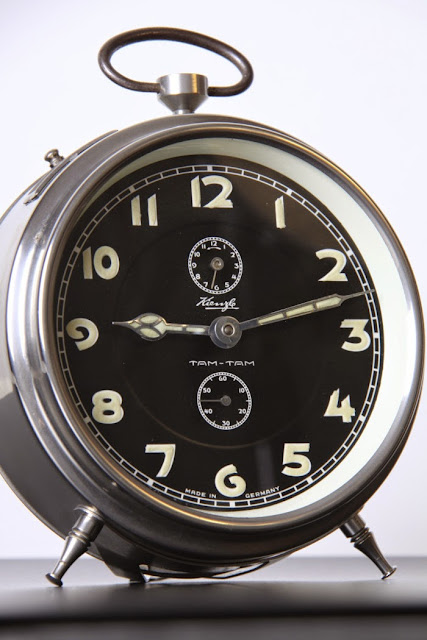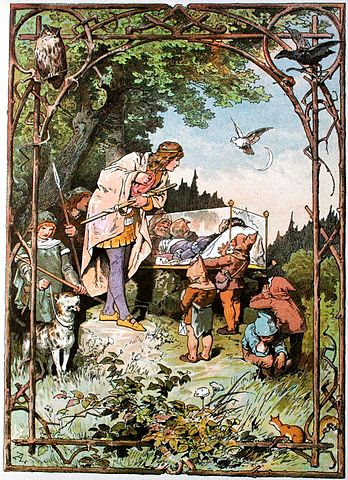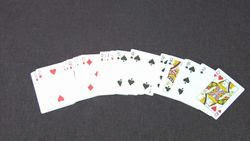THE MAGICIANS
Welcome to the magic world of advertísing, the world of manipulation of minds. Welcome to a world where desire for a product can be artificially created, where the art of outlandishly clever salesmanship is practised - such as 'the art of selling a refrigirator to an eskimo'(Peter Drucker).
There was a time, not too far back, when the quality of a product determind its sale, nothing else. That was till the forties. You may recall brands with the stamp of quality that were constantly in demand - KIENZLE(Germany) CLOCKS. . . HERCULES (England) BICYCLES. . .Model-T Ford of USA . . . etc..
"If you make a better mousetrap", Ralph Emerson is said to have maintained, "the world will beat a path to your door".Those were the days when quality reigned supreme. People did beat a path to your door for the quality of your products. . . that was till the management boys materialised. . . !
The entry in the early fifties, of hordes of 'assembly line' MBAs, mass 'manufactured' in famous Institutes of learning, into the corporate world was a game changer. It changed the way people made their choice for purchases. With a dose of psychology they turned your wish-list upside down. Emerson's better mousetraps were lost in management's psychological war games, in crafty advertising wars!
The corporate world today is after the lucre. That's their Raison d'etre. It is cut-throat competition all the way. It is a war - war against the competitors, war to conquer the minds of masses, war to make the corporate giants richer. The name of the game is maximisation of share holders' profit. And so the blue-eyed boys you hired for mind-blowing sums tell you, for example, how many more words could be crammed into each page of a novel (to save on paper and thus increase profit) without losing readers - the dy/dx of the game of optimisation. And they tell you how to trick the target group into purchasing your products.
The trick is to make a man develop an intense desire to offer himself to the man-eating tiger on his own. They have a name for this Harakiri - 'Motivation'! And the modus operandi for this trick are taught in the management class rooms where the ideas of Abraham Maslow,
Frederick Herzberg's et al are drilled into you until they become your second nature. You develop 'models' to control the way the public brains work.
You may have noticed that the good old common salt is back in the reckoning. A toothpaste man in a doctor's white long-coat tells you in that TV visual that his brand of toothpaste has salt in it. Great statement! But that was exactly what your grandfather had been doing in the past - cleaning his teeth with salt once in a while to make them extra white. And he got mocked at by these very same advertising blokes who offered the then 'scientific' (now reportedly harmful) fluoride in your toothpaste.
They have tools to develop in the target group a feeling of 'Inadequacy'. 'Target group' are those sitting ducks who have the potential of being their next 'prey'. "His shirt is whiter than my shirt because he washes it with DING DONG detergent." says the ad and your mind goes into a tailspin. Why not get DING DONG DETERGENT even though it is very costly.
Now you can see how they have succeded in planting the feeling of 'inadeqacy' in your mind - for a product you cannot afford.The problem of affordability is solved by offering you credit. There is constant clamour for making loans cheaper - so that people may buy the products they cannot afford and don't need in the first place. The corporate world is not interested in increase in the rates of interest on Government saving bonds which sustain the middle class and which the Government can use in development work ! They are interested in cheaper loans to customer to entice them to make non-essential purchases, to boost sales, to boost their profit, to boost SENSEX, NASDAQ, Dow Jones, and S&P ! This is a no-brainer to an educated person.
Thus people end up taking an ego trip. Courtesy cheap loans they buy cars and clog the roads of world's cities, converting these roads into 2G internet lanes.
Advertising world has devised methods to overcome legal barricades. If law discourages the use of a product they device psychological advertisement to undo the damage. When statutary warnings first came to be written on cigarette packs on account of the DANGER of developing cancer, the format of ads changed. They used celebrities who seemingly had the habit of scoffing at dangers and, incidentły, also smoked a particular brand of cigarette.
It is time there is some kind of ethics in advertising. It is overdue. When a celebrity endorses a product he should be made to take responsibility for making that endorsement and made an accomplice in public-disservice if the product's claim is false or the product is harmful. It should be deemed a case of cheating of the masses - punishable under the law as a crime.
The magic of a P.C.Sorkar or a Houdini was of a different kind. It was harmless to the society. They entertained.
The magic of advertising may be entertaining. But it is not always innocuous. It can be an attempt at deception! It is time it is put under the microscope of legal scrutiny - in the interest of the society.
**


















































